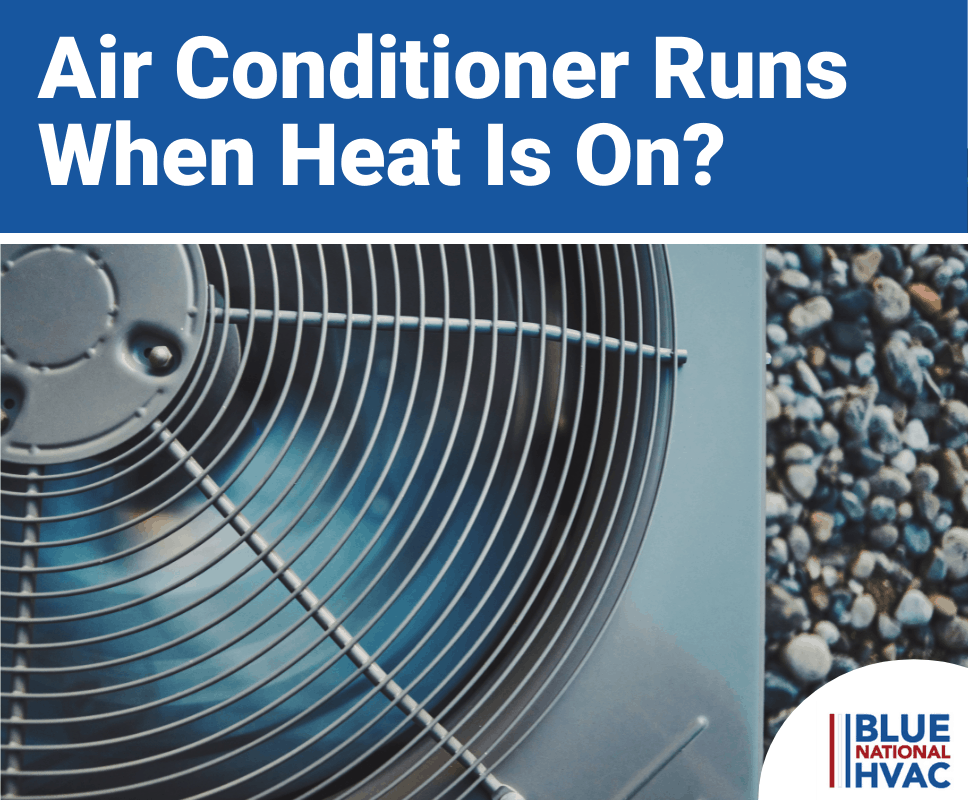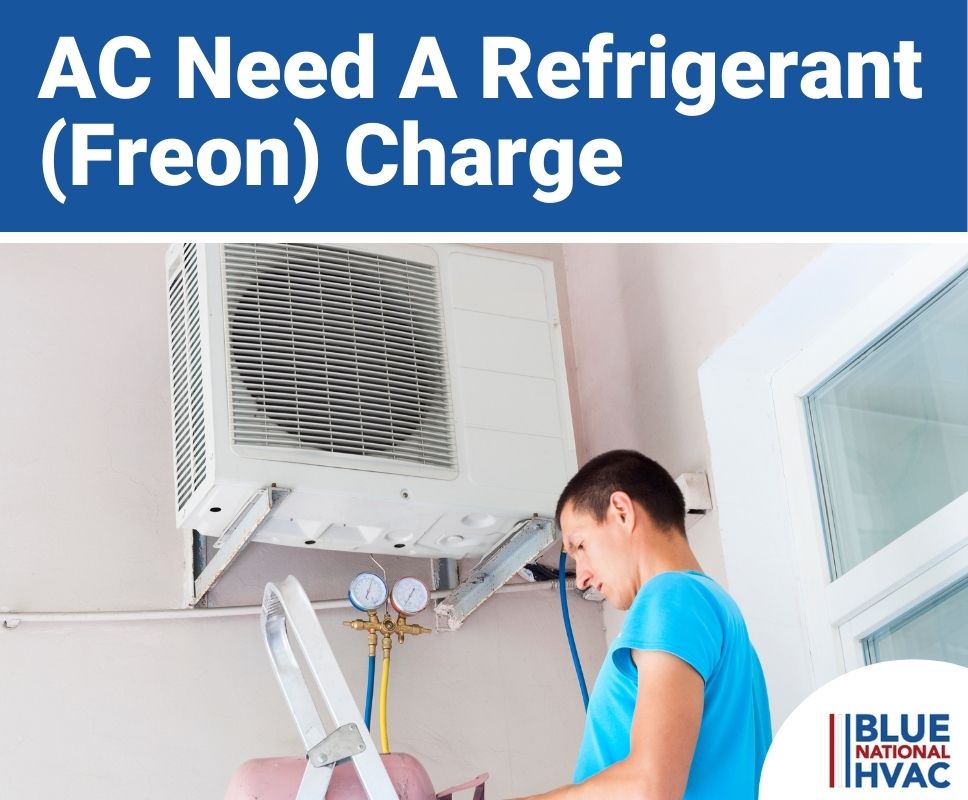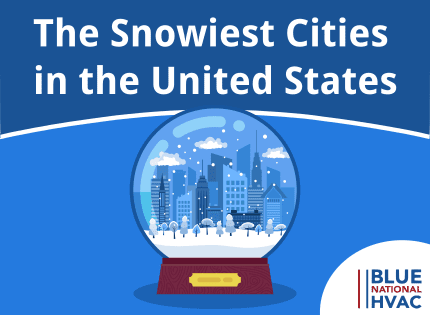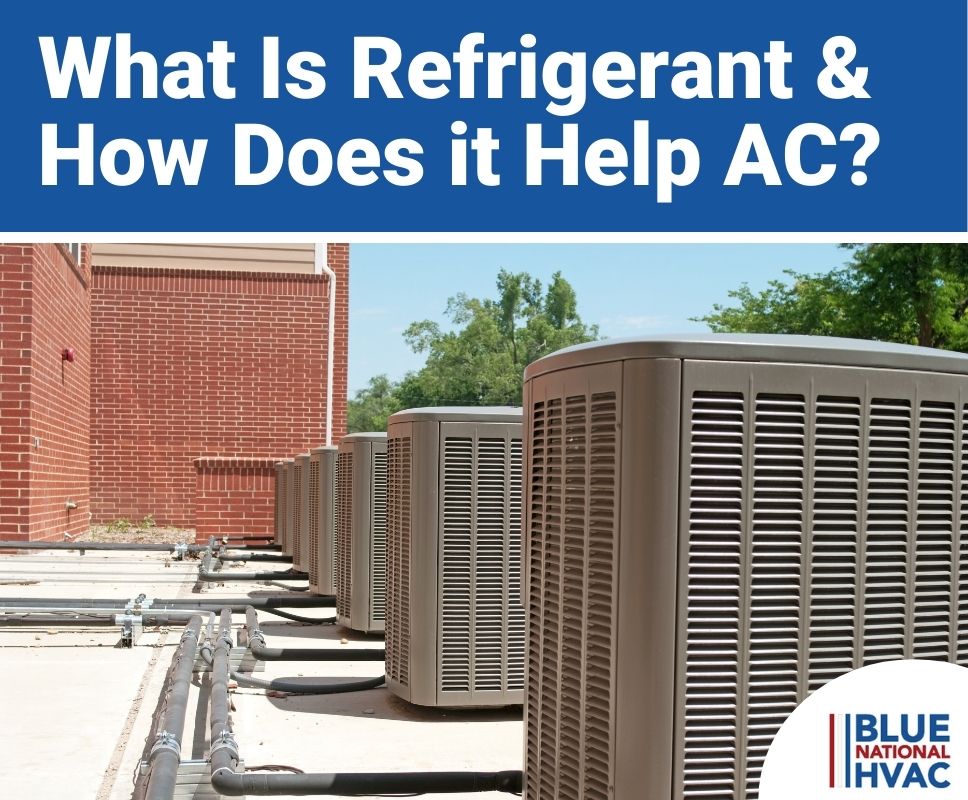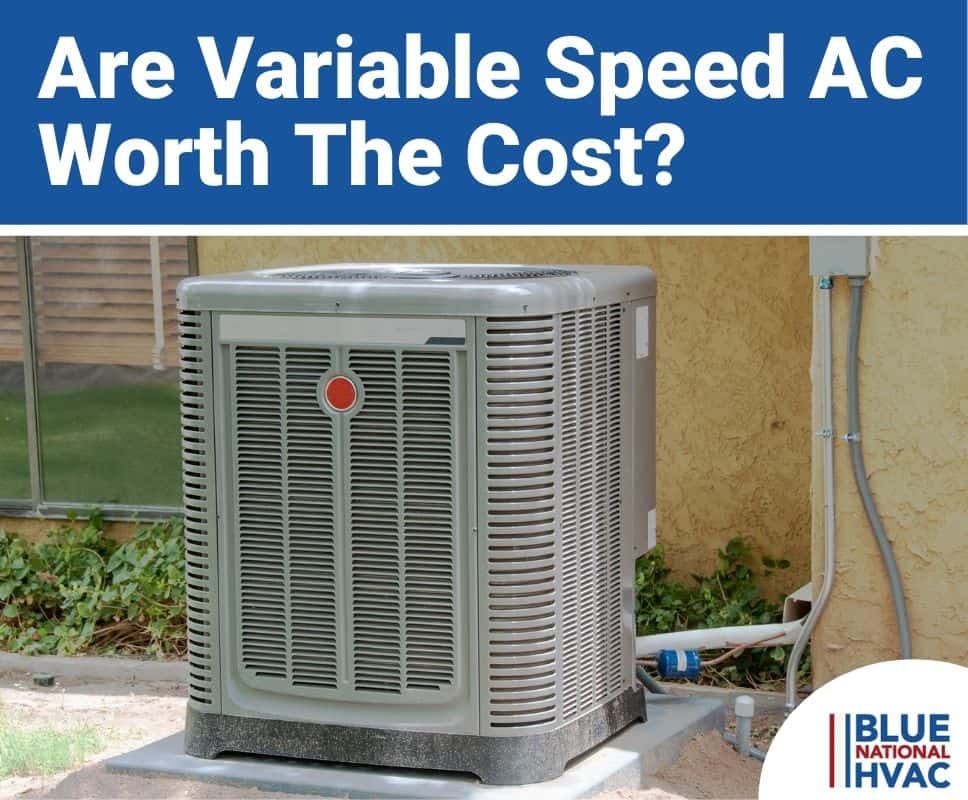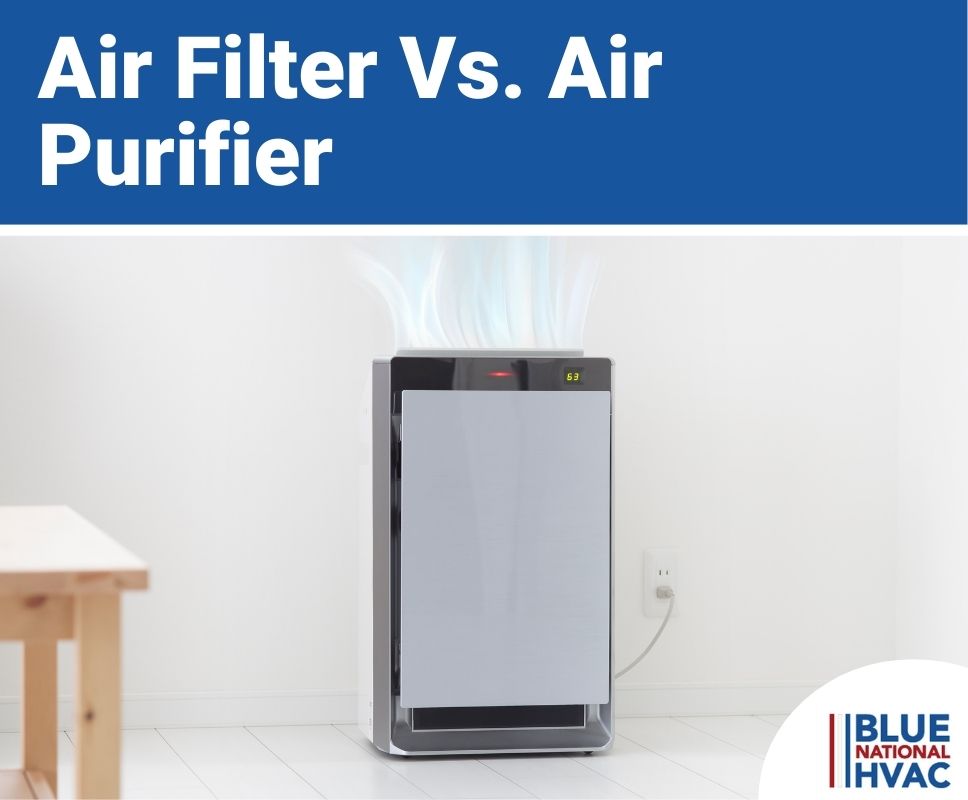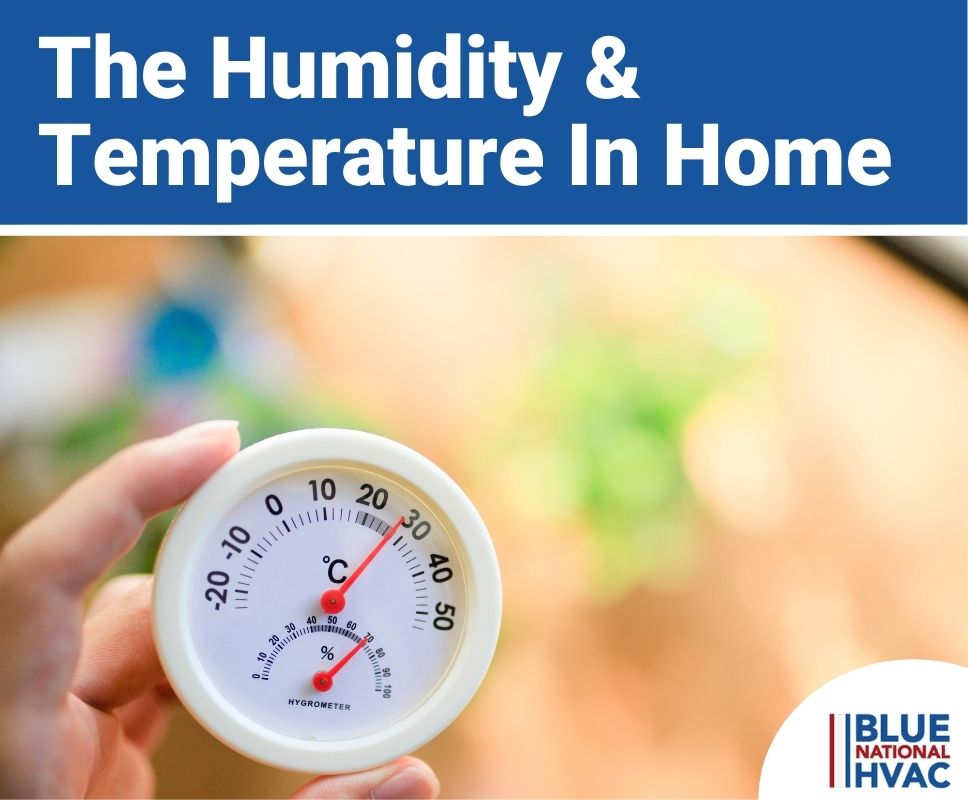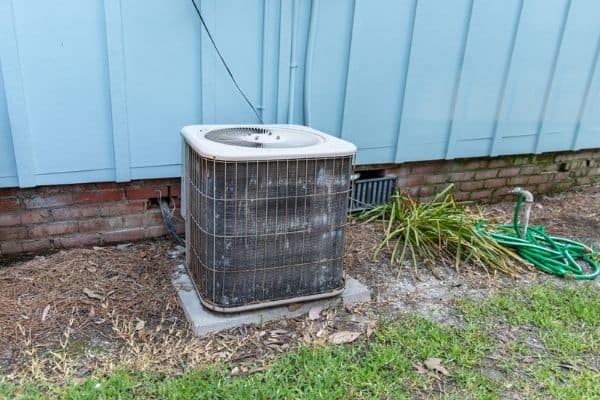Why is Your Air Conditioner Running When the Heat is On?
If it is your first time living in a warmer climate, you might have noticed the outdoor AC unit of your air conditioning system running when your thermostat setting is on heat. After checking your vents, you can feel hot air coming out.
So what gives? Why would the outdoor air conditioning unit be running when the furnace is on? Well, the answer is maybe not what you’re expecting – what you have is not technically an “air conditioner.” The HVAC system you have is called an air-source heat pump.
Let’s elaborate – an air-source heat pump is like an air conditioner. It uses the vapor compression refrigeration cycle to cool air, dehumidify it and provide it into your home. However, it can also heat your home too!
Like AC units, heat pumps cool your home with the vapor compression refrigeration cycle and blasts the hot air outdoors via the outdoor unit (condenser).
However, heat pumps have the additional capability to reverse this cycle in the opposite direction of a standard air conditioner and provide warm air indoors and blast the cold air outdoors.
Air-source heat pumps are used in climate zones with milder winters, such as the southern US states. Instead of having a gas furnace and a central air conditioner, air-source heat pumps are commonly used as they are more efficient than gas furnaces in these climates.
In the northern US states, which have colder winters, central AC units and gas furnaces are more common. The reason is that air-source heat pumps typically don’t heat as well as gas furnaces in frigid weather.
Other Reasons for Your AC Unit Run While The Heat Is On
Besides mixing up an air-source heat pump with a central air conditioner, there are some uncommon reasons why an air conditioner and a furnace would run at the same time, including:
- A new AC unit, furnace, or thermostat was installed and has incorrect wiring
- The thermostat bad is turning on the AC unit and furnace at the same time
- The control board on the furnace or air conditioner has failed
- Wires are shorting out, causing the AC unit to turn on
These four issues can be tricky to diagnose correctly. If you are sure you have an air conditioner and furnace running simultaneously, give our HVAC pros a call. We’ll schedule a visit to diagnose and fix your issue.
How Do You Tell if You Have a Heat Pump?
Telling an air-source heat pump apart from a central air conditioner is not always easy for those not well-versed in HVAC systems. Both systems have indoor and outdoor units that pretty much look identical from the outside.
However, if you know what to look for, you can determine if your home has an air-source heat pump or central air conditioner in less than 10 minutes. We’ll guide you through just how to do that now.
Look for a Reversing Valve
Central air conditioners do not have reversing valves since the refrigerant flow is designed only to go one direction for a cooling function. The evaporator coil (indoor coil) removes heat from the air, and the condenser coil (outdoor coil) releases the removed heat to the outdoors.
In air-source heats pumps, a reversing valve is utilized to reverse the refrigerant flow direction. When the flow is reversed, the indoor coils now work as a condenser and provide heat to your home. Also, the opposite applies to the outdoor coils, meaning it dumps cool air outside (like evaporator coils).
If you have an air-source heat pump, you’ll be able to a reversing valve inside the outdoor unit. It’s a brass device with a 4-way pilot; it has three stems on one side and one stem on the other. If a reversing valve is in your outdoor unit, you have an air-source heat pump. If not, then you have a central air conditioning system.
Look at the Owner’s Manual
If you have the owner’s manual for your HVAC system filed away, dust it off and read the description. The manual will provide a clear answer as to whether or not you have a heat pump.
However, if you’re the new owner of the home, perhaps you were not provided the owner’s manual by the previous occupants. In this case, you’ll have to do some additional investigation.
Search You Model Number
You can find the model number of the outdoor unit inscribed on a nameplate. If you do a Google search of the model number, it should tell you whether the system is just a cooling system or an air-source heat pump.
Contact Us For Help
If you’ve exhausted your options and you’re still scratching your head trying to figure out if you have a heat pump or an air conditioner, give us a call! One of our HVAC experts can help you determine what type of system you have and the type and amount of maintenance it needs.

Heat Pumps Explained
Heat pumps are like air conditioners in that they use the vapor compression refrigeration cycle to remove heat from the air. However, they can also operate in reverse, extracting heat for the outdoors and providing the heat into your home.
At this point, you might be wondering why we use gas furnaces and air conditioners at all if heat pumps are so great.
Well, since air-source heat pumps work by extracting heat for the outdoors, they don’t work as well in cold climates. It might be counterintuitive, but cold outside air still contains heat (unless the temperature is absolute zero, which is -460°F or -273°C).
Heat pumps are designed to remove heat from even cold outdoor air, with standard domestic air-source heat pumps working down to around 5°F (-15°C) and more sophisticated units providing useful heat down to -22°F (-30°C).
However, in climates that experience hot summers and frigid winters, like the Northern US and Southern Canada, air conditioners and gas furnaces are still the most efficient and provide the best out-of-pocket value for homeowners.
In areas with milder climates, such as most Southern US states, heat pumps provide better efficiencies and comfort while having overall lower upfront costs.
Air-Source Heat Pumps
An air-source heat pump (ASHP) is the most common HVAC system confused with a central air conditioner. The indoor unit of this system typically sits in the basement, attic, or garage of the home, while the outdoor unit traditionally sits on a small concrete pad outside the home.
Like all heat pumps, ASHPs can provide heating and cooling into a home, while some also provide domestic hot water (replacing your water heater).
Ductless Mini-Split Heat Pumps
Ductless mini-split heat pumps usually aren’t confused with air conditioners. However, they are worth mentioning as some people only know about their cooling capabilities and not their heating abilities.
Ductless mini-splits use less energy than any type of HVAC system. They are “split,” meaning the indoor unit and outdoor unit are separated. However, with these nifty HVAC systems, the “indoor unit” (with the blower and indoor coils) is wall-mounted directly into the room you wish to heat and cool.
Since the ductless mini-split heat pumps provide heating and cooling directly into the space or room (as opposed to through ductwork), they have one of the best energy efficiencies of any air conditioning system and have lower energy bills.
Geothermal Heat Pumps
Geothermal heat pumps (GHPs) are less common in residential applications due to their high upfront capital expense. GHPs harvest thermal energy from the ground in the cold months to heat your home.
They’re not just heating systems either. They use the ground as a heat sink in the summer to cool your home.
How Do You Maintain Your Heat Pump?
Whether you have an air-source heat pump, ductless mini-split, or a geothermal heat pump (or just an air conditioner), regular maintenance will help keep your system in tiptop shape.
As a homeowner, you can routinely clean the air filter, indoor coils, and outdoor coils. Routine cleaning and filter replacement improves the indoor air quality, airflow, and performance of your system.
Additionally, a complete system tune-up should be performed on your heat pump at least once per year. Remember, a heat pump provides both heating and cooling, which means your system will be running year-round. Grant it the TLC it deserves.
What Should You Look For In An HVAC Specialist?
Suppose you need help determining why your air conditioner is running while the heat is on. In that case, our seasoned HVAC professionals can help you determine if you have an air-source heat pump or a malfunctioning air conditioner.
If this guide helped you determine that you have an air-source heat pump (and not an air conditioner) and you want to ensure you provide it with proper maintenance, we’d be happy to schedule service with you.
Our routine maintenance packages and experienced HVAC technicians can keep your heat pump running smoothly and efficiently for years to come. We’re also available for emergency service calls for AC repair. Give our HVAC experts a call today for help!

